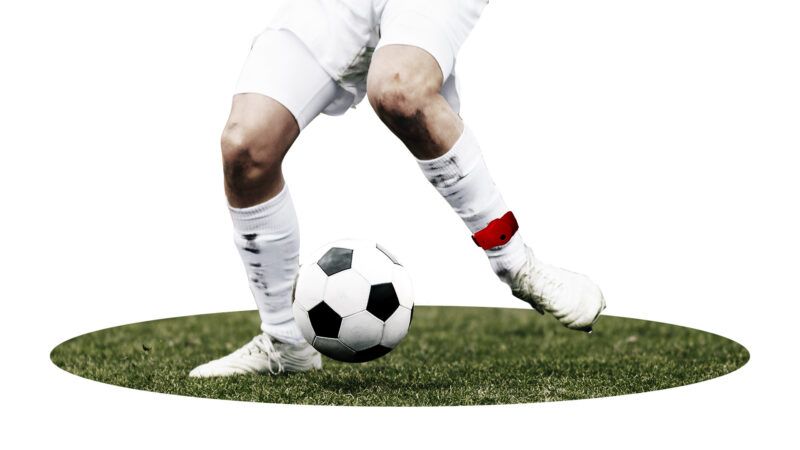COVID Money Funded Ankle Monitors for Student-Athletes in Washington
"You have no choice in the matter."

The American Rescue Plan, passed in March of this year, came out to $1.9 trillion dollars. "This legislation provides resources needed to open our schools," said President Joe Biden after it was signed into law. "How many of you have dealt not only in your own home and with your children and grandchildren, if you have them, with how difficult it is, the mental pressure and stress that are on so many families? So many people…needing help…because it's caused an enormous, enormous stress."
The law gave schools wide latitude in how to use those taxpayer dollars. One school in Washington state got creative, investing in ankle and wrist monitors to track student-athletes playing on indoor moderate-contact or high-contact sports teams, including football, soccer, volleyball, basketball, cheerleading, and tennis, among others.
Eatonville High School, located outside of Seattle, said it fitted students and coaches with the monitors to get data points on their proximity to others during practice in the case that a player or faculty member developed a case of COVID-19.
"If a student or coach tests positive, we will have immediate information regarding athletes' and coaches' contacts, so we can more tightly determine who might need to quarantine," the school said in a statement.
But the district backtracked on that yesterday, putting the program on hiatus after it received backlash and reportedly failed to get permission from all parents. "The proximity monitors have been temporarily shelved pursuant to further parent input," said Eatonville School District Superintendent Gary Neal in a statement.
Triax Technologies, which makes the monitor, says that it does not track location data, instead zeroing in on distance between players. Students remove the monitors after practice.
But that wasn't enough to placate some parents, who are anxious about the program returning, should Eatonville decide to re-implement it. "I was notified if I didn't sign [the consent form], they couldn't play," said Jason Ostendorf, whose two children are on sports teams at the school. "My son has played football since he was in third grade. He's passionate about the sport….If you don't sign the waiver, they don't get to play. You have no choice in the matter."
Some took the program out of context. The right-wing site The Post Millennial originally claimed that only unvaccinated students would be required to wear the monitors. In actuality, all students participating in those sports were required to do so, whether or not they had received the vaccine. (The article was later updated without a correction appended.)
"We received grant funding (known as ESSER III) that specifically included provisions to support higher-risk athletic programs, and we used some of those funds to pay for athletic proximity monitors," said Neal in a statement. "The monitors are for both staff (coaches) and students on the field, regardless if they are vaccinated or unvaccinated."
But therein lies a different problem: the program's use of taxpayer dollars—aid that was intended to lift the burden of, as Biden said, "enormous, enormous stress." One wonders how this measure accomplishes that, as some parents choose between fitting their children with a device they are fundamentally uncomfortable with and forcing their kids to drop out of their sports activities altogether.
Though it can be hard to cut through the panic, the risk of a teenager becoming seriously ill with COVID-19 is exceedingly low. In the U.S., children make up somewhere between 0–0.22 percent of deaths from COVID-19, with seven states reporting no deaths at all. Approximately 358 children had died from the virus as of July 29.
In that vein, Eatonville's taxpayer-funded monitors appear to be a symptom of those who would like to work toward "COVID zero": an unwinnable goal, and a troubling precedent for the approach to any comparable disease. Should parents and kids have to sacrifice either their comfort or their sport for the possibility that one might get the flu? Prior to COVID-19, I assume most would have found the idea absurd.


Show Comments (62)